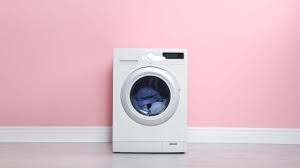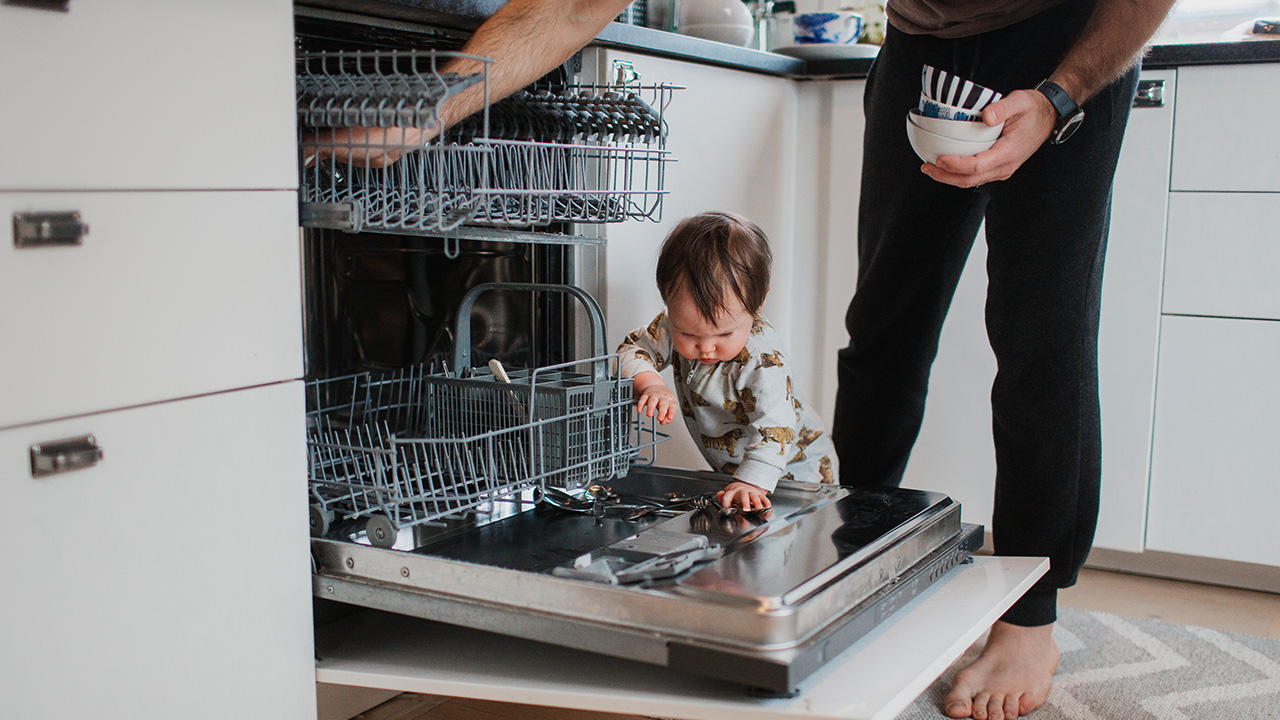Introducing Washing Machine Repair Costs: Breakdown, Comparison, And Saving Tips
Introduction
When you’re faced with a malfunctioning washing machine, you're likely wondering about the repair costs you're about to incur. This comprehensive guide will shed light on the various factors influencing the average cost of washing machine repairs. Thus, helping you to make an informed decision while dealing with such unwelcome circumstances. Furthermore, we offer some tips for saving on these costs through proactive maintenance and knowing when to opt for a replacement instead.
Why Do Washing Machines Require Repairs?
A washing machine, just like any other mechanical device, may face malfunctions over time. These malfunctions can stem from regular use, mishandling, or even inherent manufacturing flaws. Here are a few reasons why washing machines often require repairs:
- Regular Usage: Washing machines endure a significant amount of wear and tear over their lifetime, a result of routine use, which can inevitably lead to certain operational hitches.
- Faults from Production: There could be manufacturing defects that lead to issues over time. From faulty components to the use of subpar materials, these faults can be an unforeseen setback for the machine's proper functioning.
- Mismanagement: Improper usage and lack of routine maintenance are other common reasons that lead to a washing machine breakdown. This can include overloading or using more detergent than necessary.
Remember, early detection and resolution of minor issues can curtail steep repair costs and add longevity to your washing machine.
What Affects the Average Cost of Washing Machine Repairs?
The average cost of repairing a washing machine is not a fixed entity but is influenced by several factors. Understanding these elements can help you set realistic budgets and also provide a context when comparing quotes from different repair service providers. These are the major factors affecting the cost:
1. Problem Complexity: Broadly, the cost is directly proportional to the complexity of the problem at hand; simple issues will generally come with a lower repair bill. Examples include blocked filters or faulty door seals. Conversely, complex mechanical or electrical problems involving the motor, the drum, or electronic control systems will likely be far more costly.
2. Machine Make and Model: It's a simple reality that high-end, often imported, models come with higher repair costs. The parts needed may well be more expensive and specialist knowledge may be required to fix certain problems.
3. Replacement Part Costs: Different machine parts come with different price tags. A new motor or an electronic control system will be more expensive than replacement seals or hoses, for example.
4. Labor Charges: These can vary considerably, depending on locality and the qualifications and reputation of the repair service engaged. In general, a licensed, factory-authorized technician will command a higher fee than a handyman.
5. Market Rates: Overall, market norms and conditions will influence the cost. As with any service, prices may be higher in certain geographical locations and lower in others.
By taking all these elements into consideration, owners can navigate the repair process in an informed manner.

How Do Common Washing Machine Problems Influence Repair Costs?
The type and degree of the washing machine issue can significantly affect the overall repair cost. The following breakdown offers a clearer picture:
- Minor Issues: Some common, but minor problems such as a clogged filter, a loose drive belt, or a faulty button won't make a huge dent in your wallet. These issues generally fall in the lower range of costs because the parts required are relatively inexpensive, and the repair process is straightforward. Generally, these repairs might range between $50 to $150, making them manageable for most households.
- Intermediate Issues: These are problems that, while not exactly catastrophic, can considerably hit your budget. For example, a leaking issue due to defective seals or hoses will require more work and more expensive parts, and so, would cost more than minor repairs. Depending on the machine's model and the labour involved, these intermediate repairs can set you back by about $150 to $350.
- Major Issues: These are serious problems often associated with the machine's motor or drum. Fixing them can be quite labor-intensive and thus, comes with high labour charges. Moreover, the replacement parts for these issues are quite expensive, pushing the repair cost significantly higher. In the worst scenarios, major repairs could weigh in at over $400.
- Diagnostic Fees: It's essential to remember that an additional diagnostic fee might be applied to the total cost. This fee covers the technician's time and expertise needed to identify the issue. This could range anywhere from $50 to $100, especially if the problem is complex or hard to diagnose.
By understanding these cost dynamics, you can make an informed decision when faced with a broken washing machine. You can decide if a repair is worth the cost or if a replacement seems a more prudent option financially.
How Can Proactive Maintenance Reduce Washing Machine Repair Costs?
The thought of saving on repair costs seems attractive, doesn't it? Well, proactive maintenance can help you achieve just that. Here's how:
- Routine Inspections: Regularly checking your washing machine can help identify small issues before they escalate into troublesome repairs. Ongoing observations allow you to address irregularities in noise, movement, and washing effectiveness promptly, thereby ensuring the machine's optimal function.
- Timely Cleaning: Cleaning the washing machine’s internal and external parts, like the lint filter and rubber gaskets, can significantly reduce the chances of malfunctions. This eliminates the risk of problems like bad odours, leaks, draining issues, and ineffective spinning.
- Levelling the Machine: An unlevelled washing machine can lead to unnecessary noise and movement. Balancing the machine not only makes it more efficient but also saves it from potential damage and, consequently, high repair costs.
- Minor Repairs: Small issues should never be ignored. A minor repair you make today can save you from a major, costly repair tomorrow. Early intervention to replace a faulty valve or seal is far cheaper than dealing with a flood or motor malfunction.

Stats Speak: According to a report by Consumer Reports, washing machines usually last about 10 years. However, regular maintenance can help extend this lifespan by 3 to 7 years further, resulting in a substantial amount of savings.
In summary, a proactive approach to the maintenance of your washing machine is a small investment with a huge payoff. Regular care not only elongates machine lifespan but also saves from high repair costs in the long run.
Is It More Economical to Repair or Replace Your Washing Machine?
At some point in the machine’s lifespan, you have to reckon - is it economical to repair the faulty washing machine or to replace it entirely? Fret not as we gauge this aspect based on the following pivotal factors:
1. Age of the Washer:
- Standard Lifespan: Most washers have a baseline life expectancy of 7-10 years.
- Repair or Replace?: If your machine has crossed the 7-year mark, you might want to consider a replacement.
2. Repair Cost vs. Replacement Cost:
- Rule of Thumb: If the repair cost is over 50% of a new machine's price, it's better to invest in a new one.
- Replacement Benefits: A new machine often offers improved efficiency, ultimately saving on utility bills.
3. Overall Condition of the Machine:
- Repeated Malfunctions: If your washer has required multiple recent repairs, it's a telltale sign that its performance is declining. Replacement might be the better option in such cases.
- Weigh Upgrades: Sometimes even a working machine might be worth replacing if newer models offer significant efficiency or feature upgrades.
By keeping these factors in mind, you can make an informed decision regarding whether a repair or replacement would be a more economical choice for your washing machine woes. Ultimately, it’s about ensuring the best route for longevity of appliance use and the most cost-effective approach in the long run.
Conclusion
Understanding the factors that influence the average cost to repair a washing machine can help you plan and budget for these essential household maintenance tasks. Remember that proactive maintenance can save you significant expenses over time, and there comes a point when it's more economical to replace rather than repair. Ultimately, the knowledge of these costs facilitates an informed decision, saving you money and prolonging the life of your appliance.
Related FAQs about what is the average cost to repair a washing machine
What are some common issues with washing machines that require repairs?
Several problems might necessitate washing machine repair. These include minor issues like clogged filters, loose drive belts, or defected buttons. More serious issues might involve leaking due to defective seals or hoses. Major problems could relate to the machine’s motor or drum system. In most cases, proper maintenance can prevent these issues.
What factors influence the cost of washing machine repairs?
The cost of washing machine repairs depends on the complexity of the problem, the make and model of the machine, the cost of replacement parts, labor charges, and market rates. Minor issues that require less labor and cheaper parts will cost less compared to major issues which require specialized labor and expensive parts.
Is it more cost-effective to repair or replace my washing machine?
The decision to repair or replace a washing machine depends on its age, overall condition, and repair cost in comparison to replacement cost. Generally, if the repair cost is over 50% of a new machine's price or the machine has recurrent malfunctions, it's often better to replace it.


